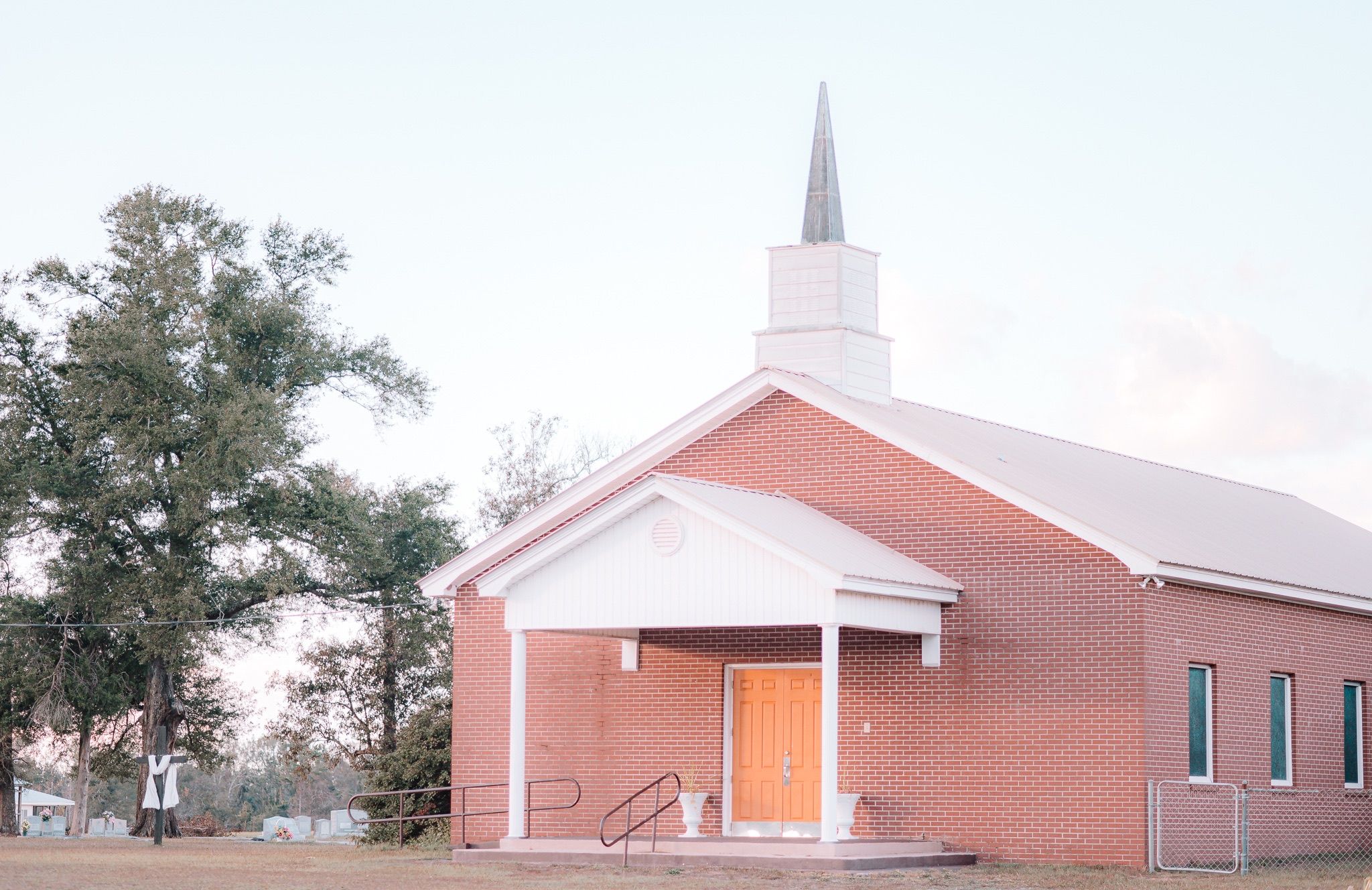The Works You Did At First (The Rise and Fall of Ephesus)
The Works You Did At First (The Rise and Fall of Ephesus)
The Life Cycle of Ephesus
In the podcast this week, our team had the opportunity to have Kyle Bueermann as a guest. His thoughts on Discipleship in a Replant were helpful, and caused me to think about examples of some churches in the New Testament who neglected this important topic.
There are many churches mentioned in the New Testament that we don’t know much about. Even in Revelation, Jesus speaks directly to some churches that haven’t been introduced in Acts, and certainly don’t have their own epistles from Paul. Churches like Pergamum are noted in Revelation for holding fast to the name of Jesus and being faithful to the gospel, but we’re not sure of their history.
However, there is one Church in particular where we can see a majority of their life cycle. We know when the church was born, when they plateaued, and we can even see the church when it nears death. That church is Ephesus.
Birth, Growth, and Maturity
In AD 52, the Ephesian church was born. The first place we read about Ephesus is in Acts 18:19, where Paul begins planting gospel seeds in the synagogue and reasoning with the Jews. With the discipleship of Apollos and 12 new believers in Acts 19:1-7, this early church was born. Here are some characteristics of its first two years:
Evangelism
The birth and rapid growth of this church is nothing short of Spirit-led. The apostle spent three months persuading those in the synagogue about the Kingdom of God, and some of his disciples spent intentional time sharing the gospel in the hall of Tyrannus. And for two years, this church was responsible for spreading the gospel throughout most of Asia. 
Ministry
The Holy Spirit was using Paul to heal the sick and cast out demons. His ministry was a public ministry, one in which people saw and recognized the hand of God. Because of this expulsion of darkness, Jesus’ name was extolled, evil practices were halted and repented of, and the word of the Lord continued to increase and prevail mightily (Acts 19:17-20).
Public Theology
In the public square, the city of Ephesus was home to the great Artemis. But Paul was committed to the truth of God. A silversmith, Demetrius, admitted, “…in almost all of Asia this Paul has persuaded and turned away a great many people, saying that gods made with hands are not gods.” What a testimony of reputation to the surrounding culture! Paul’s ministry of the word had caused quite the stir, and possibly potential persecution for the church. However, he held fast to the truth and did not waver.
Leadership Development
Paul was also intentional in developing leaders. In his return through Macedonia, it lists a number of men who accompanied him: Sopater, Aristarchus and Secundus, Gaius, Timothy, Tychicus and Trophimus. Paul regularly identified leaders, trained them, and appointed them to positions within the church.
Intentional Discipleship
In more quiet and intimate times, Paul spoke to church members with words of encouragement and care. He spent intentional time with them, studying the word of God, conversing with them, and bidding them a long farewell.
Confidence in his Ministry
 One of the last things we see about the growth and maturity stage of this church plant were the tender words Paul spoke to the elders of the Ephesian church during his departure. He notes that he served the Lord with all humility, tears, and trials. He did not shrink from declaring anything to them from teaching in public or from house to house. After giving an encouraging word to the pastors, he admonishes them to help the weak and to give sacrificially.
One of the last things we see about the growth and maturity stage of this church plant were the tender words Paul spoke to the elders of the Ephesian church during his departure. He notes that he served the Lord with all humility, tears, and trials. He did not shrink from declaring anything to them from teaching in public or from house to house. After giving an encouraging word to the pastors, he admonishes them to help the weak and to give sacrificially.
Plateau
Ten years later, Paul wrote a letter to the Ephesians. When it first started, the church in Ephesus was a vibrant, growing church focused on the ministry of the word and bold evangelism. But now, in AD 62, Paul needed to remind them of the gospel truth they believed, and he also needed to call out some potential warning signs.
Paul knew that if he did not make them aware of the potential pitfalls, it was possible that their church could decline and become unhealthy. During this letter, there is no clear indication that the Ephesian church was in any kind of serious trouble, but Paul felt the need to remind them of their peripateo seven times. He was reminding them to look carefully at their conduct in life.
A Plea for Love
We first see these warning signs when Paul “urges” them to walk in a manner worthy of the calling to which they have been called. The way they must do this is by genuinely loving one another. This type of love must be shown through humility, gentleness, and patience. Bearing with one another meant that love must be the focus of this ten year-old church to stay in relation to one another.
Striving for Unity
Paul also desires that they would not simply maintain, but that they would be eager to maintain the unity of the Spirit and the bond of peace. He reminded them that there was one body, one Spirit, one hope, one Lord, one faith, one baptism, and one God and Father. Paul knew that if this church was not eager to be unified, they would very quickly be vulnerable to the enemy.
Pressing on to Maturity
Another warning sign that Paul gives is the most clear indication of healthy discipleship: maturity. God’s people are supposed to grow, and Paul wants this church to remember that they are to grow up in every way into him who is the head, into Christ (Ephesians 4:15). If this church did not press on towards maturity, they would forget the reason for their work of ministry: discipleship. Their growth in the faith had to be something they continually longed for as a church body.
Putting Sin to Death
In chapter 4:17-32, Paul gives them a list of sins to flee from. Were these indicative in the early church? We aren’t sure to what extent, but Paul found it necessary to address these particular sins: sensuality, greed, falsehood, sins of the tongue, bitterness, wrath, anger, and sexual immorality.
Getting Busy Again
Another point of responsibility for Paul to address is the issue of idleness. In other books, Paul warns against being lazy or idle in the Lord’s work. And in 5:15-17 he reminds the church of making the best use of their time. Alongside instructions to the family design, and cautioning them against spiritual warfare, Paul gives many general instructions or reminders to this church to remind them of what they should focus on in their present age.
Decline, Potential Death
Outside of a few other letters, the next time we really read about the Ephesian church is not from Luke, nor from Paul, but Jesus Christ himself in Revelation. Before the apostle John was taken up on a cloud of glory and shown glimpses of the kingdom of Heaven, Jesus had some words he wanted to share with seven churches. The first one mentioned is Ephesus.
This is 30 years later: potentially AD 95. At this point, the church is 50-60 years old, and much has happened in between Paul’s letter and Jesus’ letter. Apparently this church is commended because they are working hard, enduring until the return of Christ. They are even commended for their commitment to doctrinal purity. However, they’ve forgotten one major thing: they’ve forgotten their first love.
The church that was the powerhouse for the word of God in the AD 50s had stopped loving Jesus. They cared more about doctrine than they did the object of that doctrine. And Jesus’ rebuke is solemn: “Remember therefore from where you have fallen; repent, and do the works you did at first. If not, I will come to you and remove your lampstand from its place, unless you repent.”
When Jesus said, “do the works you did at first,” what did he mean? Jesus was encouraging them to do the ministry they were doing when they first became a church. They needed a renewed zeal. They couldn’t forget the reason why they first were preaching the gospel with such boldness: because they had been saved by Jesus.
When a church forgets the basic, simple truths of the gospel, all the doctrinal purity in the world has lost its purpose. The point of theology is doxology. The reason we study is not simply to show ourselves approved, but to rightly divide the word of truth (2 Timothy 2:15). And this is why discipleship is so necessary to any type of Revitalizing work.
Discipleship Has to be the Focus
In the podcast this week, Kyle Bueermann shared with the Replant Bootcamp about the necessity of discipleship in a Replant. If the Ephesian church was a church we started working with at the Association, they would be a church that had missed the first two windows of Revitalization. Even Jesus was close to removing the lampstand of the church. The lights would go off and the doors would close, because they were trying to do ministry void of a genuine love for Jesus.
We must not forget loving, growing, and maturing towards our relationship with Christ. If you are a church that is in danger of closing, my first encouragement to you would be this: start loving Jesus again. When that becomes the focus of the church, you begin to be more passionate about the gospel, and you start falling in love with your community again. But none of this is possible without an intentional focus of discipleship in your church.
If you think your church is in danger of closing, take this church health assessment. This self-assessment is meant to help assist you in determining the current state of your local church. Another way to get started is by taking an introductory course that will help anyone understand what church replanting is and how it provides hope for dying churches.















